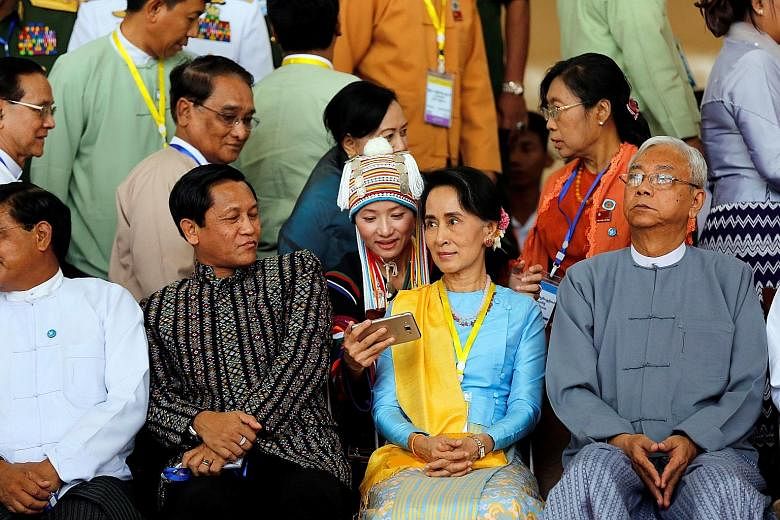NAYPYITAW • Peace talks got under way in Myanmar yesterday, with de facto leader Aung San Suu Kyi defending her government's stuttering attempts to end decades of fighting between the military and ethnic rebel groups.
Ms Suu Kyi sought to dismiss criticism that little progress has been made on her flagship peace policy more than a year after her party took power.
"Our collective efforts have started to bear fruit," she told the conference, according to an official translation of the speech. "We have now reached the stage where we are able to discuss the basic federal principles that are so important for our country and our people."
This week's gathering is the second round of peace talks since Ms Suu Kyi's civilian government came to power. No rebels are expected to sign up to the National Ceasefire Agreement (NCA), which she is pushing during the conference - a controversial deal first touted by the previous military-backed government.
But the agenda will cover what shape a federal union might take and is expected to include the first discussions on whether states will be able to draft their own constitutions.
Allowing states to write their own charters would be a "historic milestone in the post-colonial history of Myanmar", said Mr Angshuman Choudhury from the Institute of Peace and Conflict Studies, adding that it could "appease powerful ethnic constituencies and... prevent outright secessionism".
Some representatives of ethnic armed groups have complained in the past that Ms Suu Kyi has taken a top-down approach to the process, unilaterally dictating the agenda, often ignoring their grievances and siding too closely with the military.
While several groups that have recently clashed with government forces and whose attendance had been in doubt, joined the negotiations, a handful of other important groups pulled out at the last minute, local media said.
Myanmar army chief Min Aung Hlaing said signing up to the NCA did not amount to surrender by armed groups, and pledged the military would play its part in seeking solutions to end conflicts.
But he also warned the groups against pushing for too much autonomy and going beyond the contours of the federal state. He said: "Such acts go against the desires and interest of the people who have high expectations of the democracy cause and peace process."
AGENCE FRANCE-PRESSE, REUTERS

